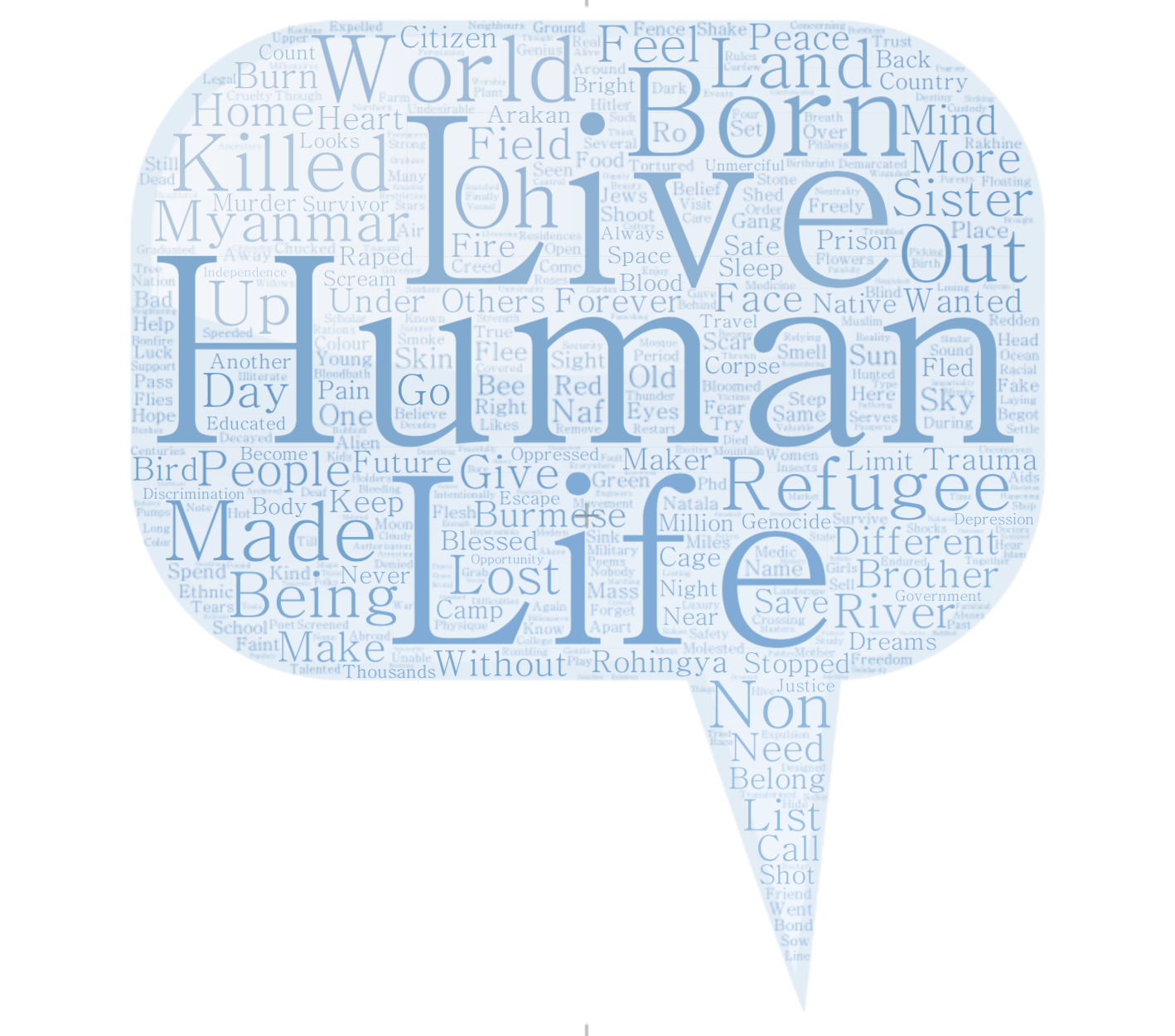Interpreting poetry through word clouds
In my last several posts I have presented the poems of three young Rohingya men, calling them refugee/humanitarians. Here are the links for posts on Arif, Ro (here and here), and Zayed (here and here).
Word clouds as tools
Recent academic research into the use of word clouds indicates that presenting complex text into word cloud form can facilitate critical thinking, and current discussions about the pedagogical/teaching efficacy of using word clouds is both interesting and robust.
Word clouds, of course, are but one tool that can be used to analyze textual content. That said, using this particular tool on the poetry of Rohingya refugee/humanitarians yielded some stunning results.
Using a basic word art generator I entered the text from all of the poems in my last several blog posts, the emotional words from Arif, Ro, and Zayed.
I chose the shape of the word cloud for obvious reasons, but the content of the word cloud that was produced took my breath away when I saw it.
Meaning emerges
The size of a word in a word cloud is determined by the frequency with which that word appears in the text.
Live. Human. Life.
Looking at the word cloud generated from these poems, those three words jump out. They also present, I feel, the message embedded in these poems, collectively. A desire to live a human life, one with dignity, hope, and promise.
By studying the surrounding words you can see ‘born’, ‘refugee’, ‘killed’, and ‘Myanmar.’
Interpretation
As a social scientist, I know that one must offer many caveats and cautions when interpreting qualitative data. In this case, the data is a handful of poems written by just three young men. The word cloud above is just one, small data point as the observer searches for an objective understanding of what life is like for refugee.
As I read and re-read all of these young men’s poems I am touched by the raw emotion expressed, much of it a frustration at the fate that has been thrown at them and their loved ones. My hope, and I know their hope, is that the world will listen to their voices and work with them to make it possible to ‘live human life.’
You can contact me here for comment, feedback, or just to reach out.


 Follow
Follow